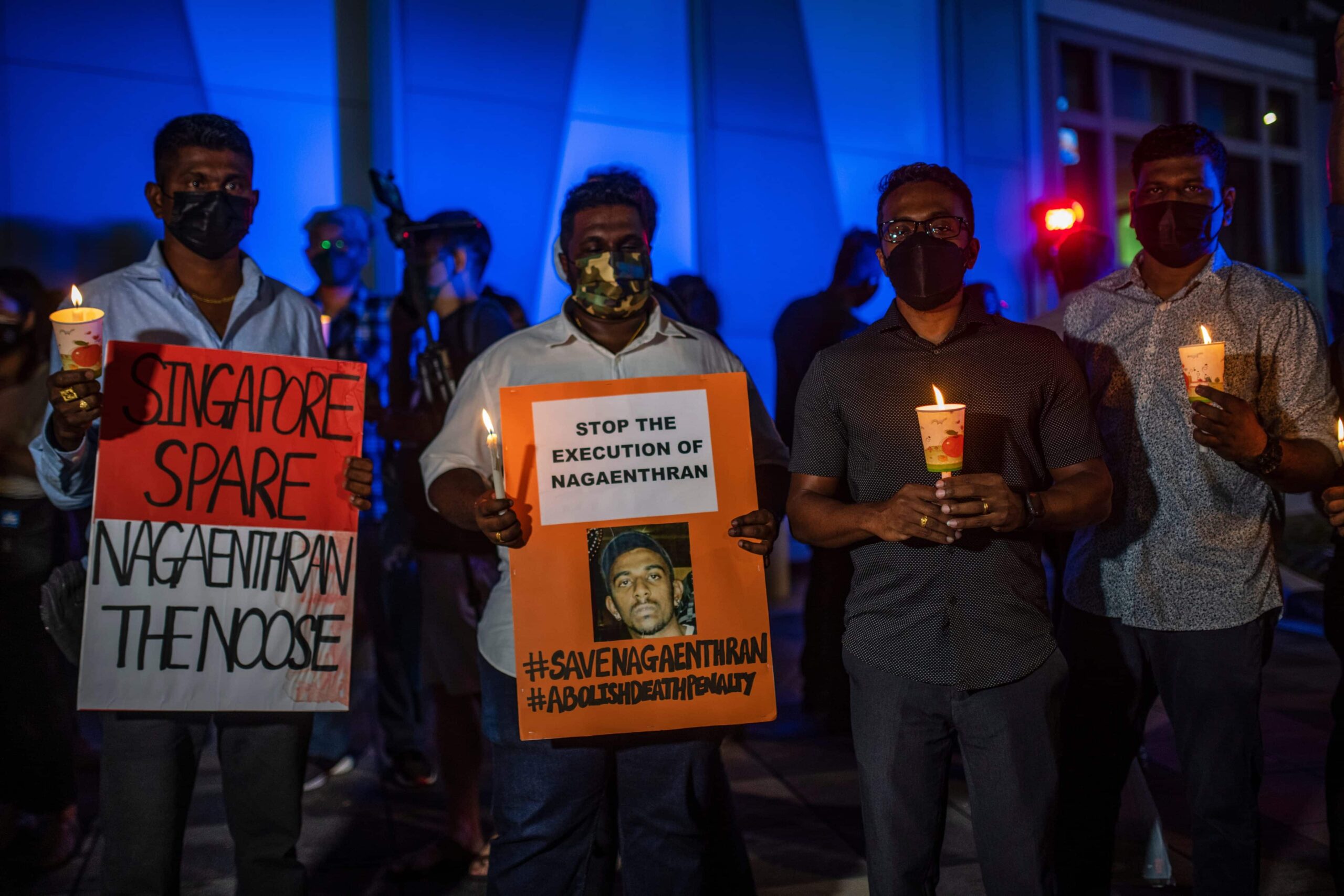
Singapore executes man for cannabis trafficking
As Amnesty International pleads to stop Singapore’s fifth execution in less than four months, a man, whose name will not be released, has been executed for the crime of cannabis trafficking at the Changi prison complex in eastern Singapore.
Executions in Singapore are carried out by “long-drop hanging” – usually at dawn. The country is notorious for its use of corporal punishment and the death penalty, and the country’s hanging system has been criticized for at least 20 years. For example, in caning punishments, a 4-foot stick, about 1.2 centimeters in diameter, is used to hit the offender, sometimes for drug-related offences. The death penalty is mandatory for the crime of trafficking in cannabis.
Thanks to activists like Kokila Annamalai, we know when grave injustices take place amid the war on drugs in the farthest reaches of the world. People like Annamalai are fed up with being executed for drug-related offences, especially when it comes to cannabis and other harmless crimes.
“We have confirmation that a 49-year-old Malay man from Singapore was executed in Changi Prison today, July 26,” Annamalai tweeted. “He has been in prison since 2015 after being convicted of trafficking in cannabis (marijuana). He was sentenced to the mandatory death penalty.”
We have confirmation that a 49-year-old Malay man from Singapore was executed in Changi Prison today, July 26. He has been in prison since 2015 after being convicted of trafficking in cannabis (marijuana). He was sentenced to the mandatory death penalty.
— Kokila Annamalai (@Kokilaparvathi) July 26, 2022
Activists say racism is part of the equation as the region is said to be prone to racist decisions during court proceedings. The 49-year-old Malay man, who was executed for cannabis trafficking, was one of 17 prisoners who filed a lawsuit accusing the Singapore government of racial bias in its prosecution of death penalty cases. Unfortunately, the lawsuit was dismissed and almost everyone involved in the case was allegedly targeted — even the defense attorney.
“This is the 6th confirmed execution in 4 months,” Annamalai continued in subsequent tweets. “He was one of 17 prisoners who filed a historic lawsuit accusing the State of Singapore of racial bias in their prosecution of death penalty cases. The lawsuit was dismissed last year and her attorney, M Ravi, was fined heavily after the Attorney General (AG) accused him of abuse of process.”
Singapore gives very little if any information about its executions, which take the form of executions. Local anti-death penalty non-governmental organizations (NGOs), such as the Transformative Justice Collective, are raising questions about the deaths and the surrounding circumstances. You receive information from other inmates or relatives of inmates, this is the only way information is possible.
Singapore officials also executed another man, Singaporean Nazeri Lajim, 64, with a long history of drug use and other drug-related offences, who was convicted of trafficking 960 grams of heroin in 2017.
Earlier this month, VICE World News followed the families of people on death row for drug-related offenses in Singapore. They found pleas for clemency to the President being denied and hopes dashed in one of the toughest places on earth to get caught with drugs.
“This morning the family of Kalwant Singh, a Malaysian on death row in Singapore, was informed that his execution is scheduled for next week, July 7, 2022,” the Transformative Justice Collective tweeted on June 29.
Singh was arrested for drugs in 2013. He was 23 at the time and has spent the last nine years in prison.
This morning, the family of Kalwant Singh, a Malaysian on death row in Singapore, was informed that his execution is scheduled for next week, July 7, 2022.
Kalwant was arrested for drugs in 2013. He was 23 at the time and has spent the last nine years in prison. pic.twitter.com/NwymqCTz0h
— Transformative Justice Collective (@tjc_singapore) June 30, 2022
Executions by hanging have ground to a halt during COVID-19, activists say.
VICE World News reports that Malaysia and Singapore shared a passionate approach to the death penalty, but both countries’ drug practices were originally rooted in British colonial laws. But then cannabis was decriminalized near Thailand, suggesting drug reform is overdue in the corner of the world.

Post a comment: